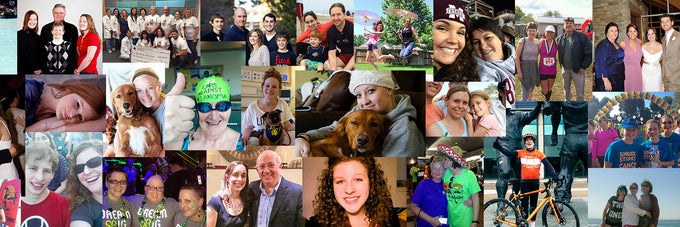My Story: For Elliott

Elliott Hull was diagnosed with Stage 4 Metastatic Melanoma in June 2018 and passed away just four months later. At the age of 35, Elliott left behind his wife and two-year-old son along with countless friends and family members. As the first anniversary of his tragic death approaches, Elliott’s father answered questions about his son’s legacy and what advice he would give to someone who thinks that skin cancer won’t happen to them.

What was the primary cancer treatment facility involved in his care and what was his experience there?
His care was a collaboration between Seattle Cancer Care Alliance and University of Washington Medicine (UWM). The doctors did what they could — gamma knife radiation, whole brain radiation, one round of at home chemotherapy. Currently, there are no effective means of treatment for the type and stage of cancer that Elliott had.
What organizations were the most helpful to Elliott?
Dr. Halasz of UWM dealt with Elliott on the most consistent basis. As the head of the radiation team she lead the most honest and empathetic team we worked with.
What would you say was the most impactful experience from Elliott’s treatment?
While immunotherapy is not known to cure the type and stage of melanoma Elliott had, it was the only option his medical team had. However, in order to keep the swelling of Elliott’s brain in check, he was administered steroids. Immunotherapy is not an effective means of treatment for a patient on steroids as they block the transmission of the therapy to the brain. Steroids, while keeping the swelling of his brain in check, did not allow for what his medical team thought might have at least given him a chance.
What would you most like people to know about Elliott?
Elliott was a man of acceptance, inclusion and forgiveness. His radiance allowed him to command a room with his presence. In many ways, he was bigger than life. Elliott was gracious, kind, and was the “go to” guy in his community when his friends needed advice. During his final days, many of his friends gathered at his bedside. The one thing they all had in common was that Elliott was their “best friend.”
What is your greatest source of strength and inspiration?
Our greatest source of strength and inspiration is having had Elliott in our lives. Because of his significance to each of us, we simply must do something to honor his existence. As a result, Bowl-A-Noma was conceived and brought to life. Through the loss of Elliott we have gained a new purpose in life: to assist in funding research geared toward treatment and the eventual cure for melanoma.Was tanning or sunbathing a significant factor in his developing melanoma?
Elliott was an outdoor lifeguard for several years, vacationed in Mexico and Hawaii, did a tour of duty in Afghanistan for the U.S. Army where he lived in the mountains as a sniper. Elliott also used tanning beds. Starting in his early 20s. We have no way of knowing if this was a factor of his melanoma. Elliott’s melanoma was regressive. His medial team was not able to detect any location where his melanoma started. The explanation given to us is that a body’s immune system will work to attack any abnormality. In Elliott’s case, his medical team suspected the original skin lesion was “cured” by his immune system but the cancer spread inward, leaving no trace of its origin.How did his diagnosis change his life?
He was diagnosed June 4th with terminal cancer after going to the doctor for migraines he suspected were brought on by a head injury in Afghanistan. He died Oct. 16, 2018. He only had four months of life once diagnosed. While never giving up hope that he would survive, he did soon realize that it would take a supernatural act to save him.
Is there an inspirational quote that keeps you moving forward and gives you strength in your life?
R.E.A.L. love lives on. REAL is the acronym for Richard, Elliott, Amelia, Louise: names of his father, sister and mother.What is the best advice you can give to someone who thinks that skin cancer won’t happen to them?
Why take the chance? Going to the dermatologist on an annual basis for a skin check is easier and less painful than going to the dentist.Any final thoughts?
In life, the only guarantee we have is eventual death. Knowing this to be true, being aware of your emotions and understanding from where they come allows for fulfillment and/or acceptance of each of them whether they be joy, sadness, gratitude, anger. Elliott’s ability to accept those things he could not possibly change, include into his life those with whom he differed, and forgive those who trespassed against him allowed him to feel with the greatest magnitude the understanding of choice.






